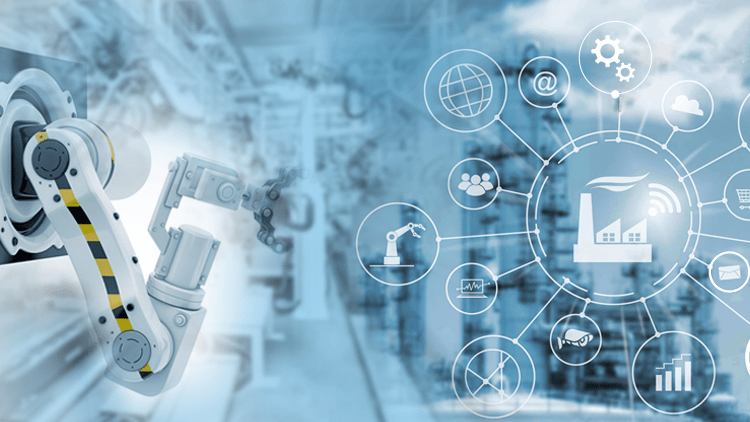One of the most important aspects within the industry to achieve a higher degree of business productivity is the automation of the different industrial processes. In any type of company in the industrial sector, the advantages of automation make it possible to improve workflow, be more agile and efficient in the different processes of the company and achieve a higher quality product. Let’s discuss the Industrial Process Automation.
Next, we will see what industrial automation is and what are its benefits and drawbacks.
What is industrial automation?
Industrial automation can be defined as the use of technologies and systems to improve, control and monitor industrial processes. Automation is mainly carried out in those repetitive processes with the aim of minimizing the intervention of an operator.
With the automation of industrial processes, the use of operators in repetitive, tiring or polluting tasks is reduced, allowing them to take care of other tasks that add value.
The main objective of automating industrial processes is to obtain the largest number of products in the shortest possible time.
What are the advantages of industrial process automation?
Industrial automation arises from the need to increase production, increase the quality of the products obtained and avoid risks for personnel. The main benefits obtained by implementing automation in the different processes of a company are:
Reduce production times and efforts
Machines can perform repetitive processes much faster than if they were done manually. With automation, a certain process is carried out in much less time and requires much less effort than if it is carried out by a conventional method.
Increase the quality of the products
The machines are capable of carrying out constant and repetitive processes, always obtaining the same result. Once a process has been optimized and automated, it is guaranteed that the end result will always be the same. Therefore, with the automation and optimization of industrial processes it will be possible to increase the quality of the products obtained.
Reduce the number of errors
Human errors are common when carrying out all kinds of tasks and processes within a company. Automation eliminates or minimizes these types of errors that people make when doing repetitive or fatigue jobs.
Production cost reduction
When a company in the industrial sector, regardless of whether it is a large corporation or a smaller company, automates some of its processes, it reduces the costs associated with it (personnel and raw material costs, for example). This saving, together with the ability to obtain a greater quantity of products, translates into greater production efficiency.
Increased worker safety
With automation it is possible to avoid that operators are exposed to risks to their health and reduces the possibility of occupational accidents. For example, process automation in a chemical industry prevents operators from being exposed to toxic or health-damaging products that are used in a process.
Higher operator productivity
Automation is often associated with the replacement of people by machines. Although it is partly true, the objective of automation is to prevent people from carrying out repetitive and laborious processes, which are carried out by machines, so that they can dedicate themselves to other tasks of higher qualification and that generate greater value to the company.
What are the disadvantages of industrial automation?
Automating the industrial processes of a company is not always a quick and easy process as it has some drawbacks.
The initial investment required to automate a process within an industry tends to have a high cost (mainly in machinery and training). However, this investment will be amortized in a few years given the efficiency of the automated processes and the relocation of personnel to other tasks with more qualifications and higher productivity. Therefore, to value an investment in automation, the ROI (return on investment) must be taken into account.
Read Also: Parenting Tips for New Parents
Another disadvantage associated with automation is the obsolescence of machinery. Technology advances and new devices, machines and more efficient systems are emerging that will make those implemented obsolete. Installing modular systems and staggering updates will avoid having to make a sudden investment, and thus avoid the obsolescence of the equipment and machines used.
Other aspects against automation are the need for highly qualified personnel and the creation of a high technological dependence that requires external companies for the maintenance of specific machinery. Both problems can be easily solved by investing in staff training.
Stalwart International, One of the best Pressure vessel manufacturers in Mumbai.




